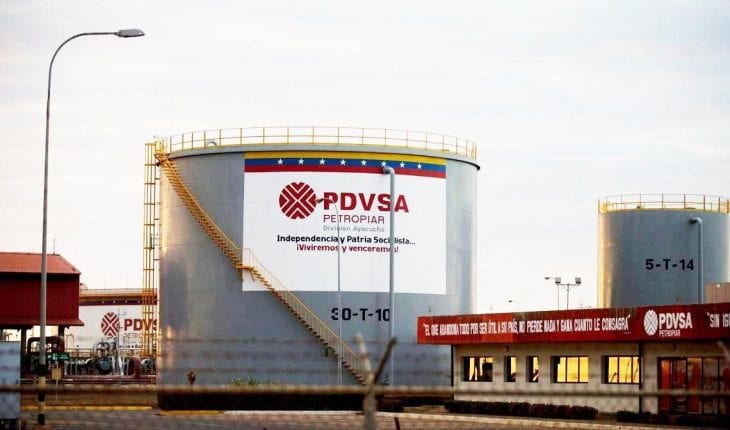(CNN Business) America’s once-robust imports of crude oil from Venezuela have ground to a halt because of Trump administration sanctions and chaos gripping the OPEC nation.
The United States imported exactly zero barrels of crude from Venezuela last week, according to government statistics. That’s never happened since the US Energy Information Administration began tracking this weekly metric in 2010.
It marks a sharp decline from the prior week, when the United States imported 112,000 barrels per day from Venezuela. The plunge in oil shipments from Venezuela helped lift US oil prices above $60 a barrel this week for the first time since November.
President Donald Trump imposed tough sanctions on Venezuela in January in an effort to punish the regime of Nicolas Maduro and speed its demise.
But US Gulf Coast refineries have long relied on Venezuela’s heavy grade of crude to churn out gasoline, jet fuel and diesel that keep the American economy humming. Just a year ago, Venezuela shipped more than half a million barrels of oil per day to US shores, making the Latin American country one of America’s largest suppliers.
“I suspect it will stay at zero. It’s a big problem for US refiners,” said Ryan Fitzmaurice, energy strategist at Rabobank. “We really do need that heavy crude that comes from Venezuela. We’re finding it difficult to source it from elsewhere.”
Adds to the misery in Venezuela
The United States has never gone a full month without importing oil from Venezuela since the EIA started measuring this monthly data in 1973.
While sanctions were imposed in January, Fitzmaurice said some shipments from Venezuela kept arriving in recent weeks because of leniency from US officials and the fact that the crude was already sitting on ships off the Gulf Coast.
Getting cut off from the United States adds to the misery for Venezuela. The nation is being gripped by a humanitarian disaster marked by starvation, a lack of medicine and mass blackouts.
Before the sanctions, the United States was Venezuela’s No. 1 oil customer. And the Venezuelan government relied on oil exports for 90% of its revenue.
Years of underinvestment from the country have caused Venezuela’s oil production to fall sharply. But that situation has been exacerbated by the recent chaos and US sanctions.
“Venezuela has been a problem child for the oil market for quite some time,” said Michael Tran, director of global energy strategy at RBC Capital Markets.
Saudi shipments down 37%
The shutdown of oil shipments from Venezuela adds to the upward pressure on energy prices. US oil has surged 40% since Christmas Eve and gasoline prices are creeping higher.
Much of that crude spike was caused by the fact that OPEC and its allies agreed last year to slash production in a bid to mop up a supply glut. The strategy worked. After plunging into a bear market last fall, crude has been on fire in 2019.
Saudi Arabia, the kingpin of OPEC, has sharply slashed oil shipments to the United States. The goal is to convince oil traders and analysts that it really is throttling back on output. And the United States has the most timely and accurate inventory data.
US oil imports from Saudi Arabia have plunged by 37% over the past year to 407,000 barrels per day, according to the EIA. And they are down by 68% from two years ago.
“The Saudis are targeting the US specifically,” said Fitzmaurice.
The good news for the United States is that it’s pumping tons of oil at home. Powered by the shale revolution, US output has soared to record highs. In fact, the United States is now the world’s leading oil producer.
Canada, Mexico have their own problems
The bad news is that US refineries can’t rely on American shale oil alone. That’s because not every barrel of crude is created equally. While US shale oil is a high-quality light grade, the decades-old Gulf Coast refinery system is configured to run on a healthy dose of lower quality heavy crude, the likes of which is abundant in Venezuela.
“In terms of real heavy stuff, we really don’t have it,” said Fitzmaurice.
Normally, the United States could turn to Canada for heavy crude. But Canada has run out of pipelines used to transport crude to its southern neighbor, limiting production.
“Canada is maxed out,” said RBC’s Tran.
Mexico produces heavy crude as well. But Mexico’s oil output has been in a steady decline for years.
The situation has caused a strange phenomenon, where heavy crude is trading on par or even at a premium to light crude.
“Why would you pay more for something that is lower quality? Because it’s becoming harder and harder to find those heavy crude barrels,” said Tran.




